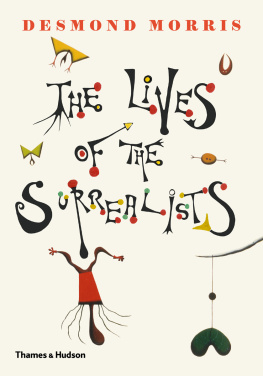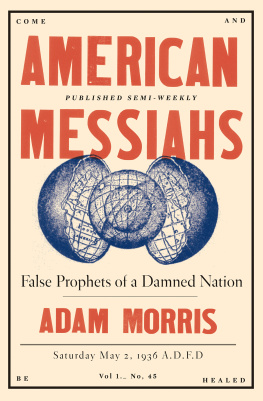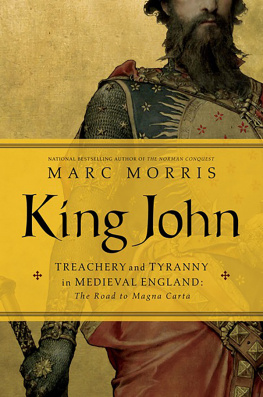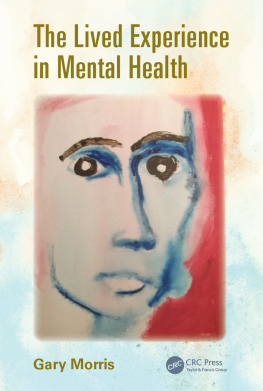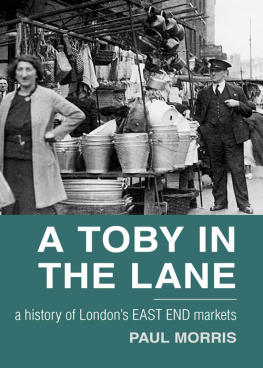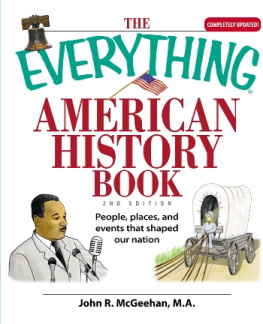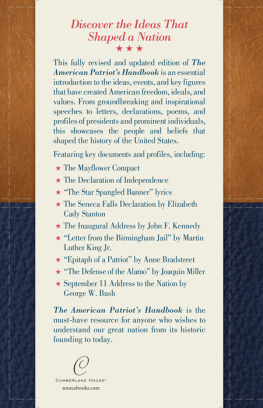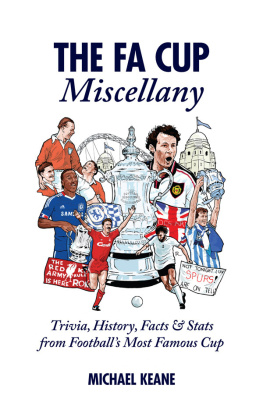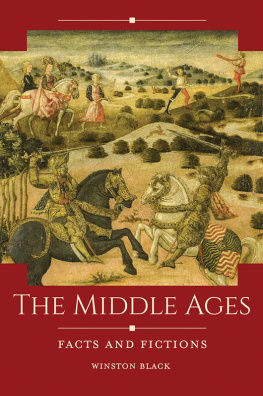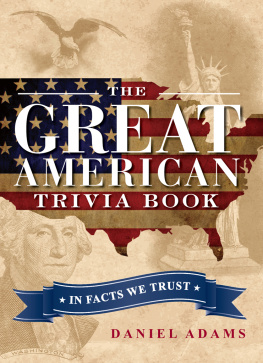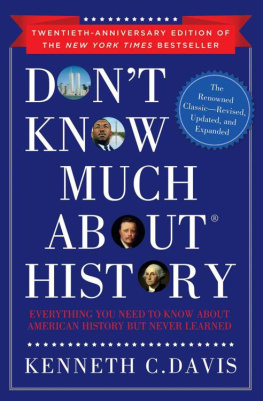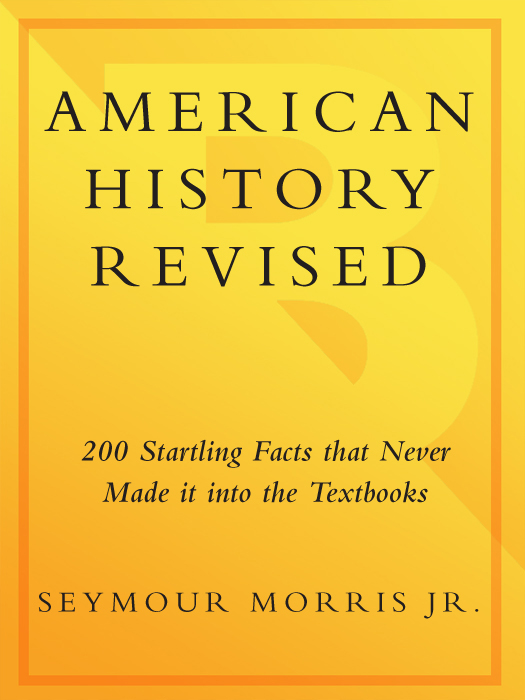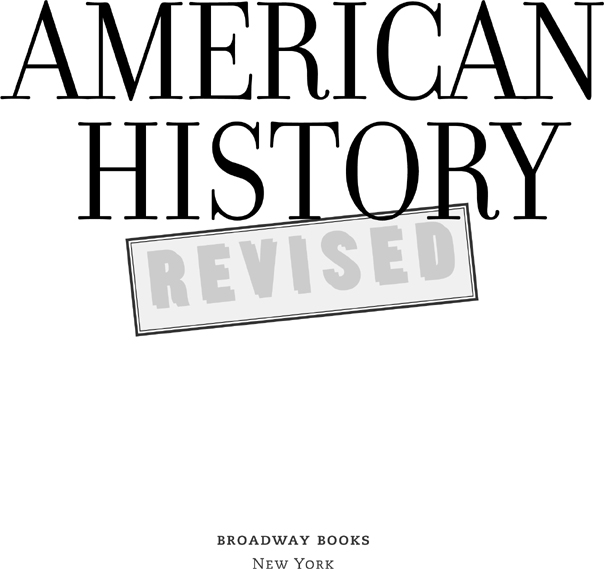CONTENTS
preface
one
two
three
four
five
six
seven
eight
nine
ten
PREFACE
History Through the Skylight
The best illumination comes from above, through the skylight.
Oliver Wendell Holmes
F or most of the past sixteen years I have lived abroad. Living in Romania and Cyprus made me confront the wonderful question posed in 1782 by the Frenchman Hector St. John de Crevecoeur, What, then, is the American?
As a foreigner, I encountered considerable skepticism about American foreign policy from European and Middle Eastern businessmen and diplomats. Oh would some power the gift give us, said the eighteenth-century Scottish poet Robert Burns, to see ourselves as others see us! So in my spare time I plunged into hundreds of history books about Americas past to help me in political debate and keep the conversation going.
I found that the best way to defuse hostility and single-mindedness was to entertain my audience with little-known stories of history that suggested greater knowledge than theirs, but with humility and a broad perspective. When asked about American militarism, I countered with the many opportunities America had to take over places like Canada and Cubaand didnt. When people accused America of not being a democracy, I countered that the Founding Fathers never intended it to be (really?). When told that Guantnamo was a violation of the Bill of Rights, I explained that the Bill of Rights was an evolving process. The idea of universal rights was not a legacy of our slaveholding Founding Fathers, but of Afro-Americans and civil rights workers who had battled to correct the injustices of our past, plus the feminists who had paved the way for equal rights for women (an opportunity only late in coming to many of their own countries, by the way).
More often than not, my audience would be flummoxed and not know what to say. They complained America had too much global power; I told them to relax, America has not won a long-lasting military victory since 1945 other than Koreaa stalemateand possibly Iraq. And look at what happened to a far more powerful empire, England in the early 1900s. We all know what happened to Great Britain
Understanding history, they would tell me, requires seeing many points of view. Excellent idea! When one foreign diplomat argued that the Indians got the raw end of the deal in the sale of Manhattan for twenty-four dollars, I offered the Native American advice to walk a mile in the other persons shoes. Turn the question around and ask yourself from the buyers perspective, How did the Dutch make out on the sale? Of course nobody knew the answer. When informed that the Dutch invested huge amounts of money in an overseas base and lost it allraising the obvious parallel of modern-day Iraq where the U.S. is facing insurmountable bills, how my European skeptics immediately agreed with that!
Then there were the hundreds of Romanian young people I met in my part-time capacity as alumni interviewer for high-school students applying to Harvard. I was intrigued at how open and receptive they were to Americain sharp contrast to their American fellow applicants who took so much for granted. It reminded me that my country, which gave me my passport, my education, and my values, is for millions of people a dream. If America is a dream, I must learn more about it. After all, who doesnt want to know more about something so enticing as a dream?
By knowing my history and viewing America with a sense of wonder, I engaged in many delightful debates and dinner-party conversations. Nobody could get angry when I teased them, Did you know that ? Touch! It was a clever way to broaden peoples perceptions and make them less emotional and judgmental. Whenever I suggested that whats happening in the world today is not as simple as you think, I would point to history, supposedly fixed in stone, right? and then provide examples that proved the opposite, that even history has its massive share of inconsistencies, twists, and turns. I would even go so far as to tease people, Suppose it never would have happened? Impossible! they would say with utter and complete conviction.
Really? Two weeks before taking office in 1933, Franklin D. Roosevelt was attacked by a madman who sprayed the scene with bullets. Had FDR been assassinated, the next president would have been the mediocre vice presidentelect, John Nance Garner. In 1930 Adolf Hitler was sitting in the front passenger seat of a car that collided with a heavy trailer truck. Had the truck braked just one second earlier, Hitler would have been dead. In 1931, while crossing Fifth Avenue in New York, an Englishman used to looking to the right looked the wrong way and was hit by a taxicabbut survived. Had Winston Churchill walked a second faster, he could have been run over. In 1963 the Secret Service in Dallas installed a protective plastic bubble over the presidents black Lincoln convertible, but it was such a beautiful day that JFK asked that it be removed so people could see him better.

Much of what history books in school tell us is dry and narrow. Take a look at your childs high-school textbook, and groan! No wonder many kids dont want to study. Dates, battles, presidents, and social trends are all essential building blocks, but not the stuff of day-to-day reality that one can readily relate to. American history, says the historian and novelist Gore Vidal, has fallen more and more into the hands of academics (not to mention textbook publishers and state school boards who insist on including every viewpoint to the point of blandness). One longs for an anecdote, a human-interest story, a startling revelation, an epistle of courage, a killing of the bad guysa moral lesson (kids know the difference between good guys and bullies). To the ancient Greeks, istoria meant a story or a tale as much as history. For centuries before the printed word, the great epics like the Iliad or Beowulfeven the Biblewere told through stories over the campfire. Said Samuel Johnson (of Johnson and Boswell fame in eighteenth-century England), Anecdotes are the gleaming toys of history. Asked how to make history interesting to todays schoolchildren, the historian Barbara Tuchman said simply, Tell stories.
A simple story can speak a thousand words. Years ago, American history came alive to me in twenty seconds. The college professor was giving a lecture about John Adams. Apparently, Adams had a roll-top desk at his Massachusetts farm where he spent much of his time during his term in office. The desk had several cubbyholes, one for each department of government. One was marked WAR , another INDIAN AFFAIRS , another CUSTOMS REVENUE , etc. That, ladies and gentlemen, was how the President of the United States ran the country in those days.
From that moment on, I marveled at our nations historynot at what it said, but at what it didnt say. Several years later at Harvard Business Schoolcertainly the last place I expected to run into American historywe were told about the early days of IBM. In 1945, founder and chairman Thomas J. Watson was asked the size of the potential world computer market. His prediction?
Just five computers
Even though the story may be apocryphal (it originated from an enemy of Watson), it was not far off the mark. In those days the early computerthe size of a room, with its ungainly wires and bulbs always breaking downwas viewed as an impractical contraption that would be useful only for academia and the military. If you consider that hard to believe, put yourself in the past and ask yourself what you would do with a room-sized box that just clanked and whirred, a machine lacking the brains of an operating system like Microsofts (far off in the future). This exerciseimagining something before it actually existsis a very difficult effort. Consider the comment of William Lear, inventor of the Lear jet and one of Americas great entrepreneurs. In the early 1960s, when he predicted three thousand business jets would be sold by 1970 and the major aircraft companies were predicting only three hundred, Lear said:


